If you or a friend are planning to travel to Europe this summer, I’m pretty sure you’ll appreciate any advice to help make your travels go smoother and safer. Europe is one of the busiest places for tourists over the summer months and 2023 is proving to be the busiest ever recorded! Here are 12 things to know before you travel to Europe. RELATED: 12 Things I Learned From Traveling to Europe This Summer

FYI: My family and I just returned from the continent after visiting six countries. We did a Mediterranean cruise and then continued traveling on our own. Here are 22 reasons to sail on Enchanted Princess.
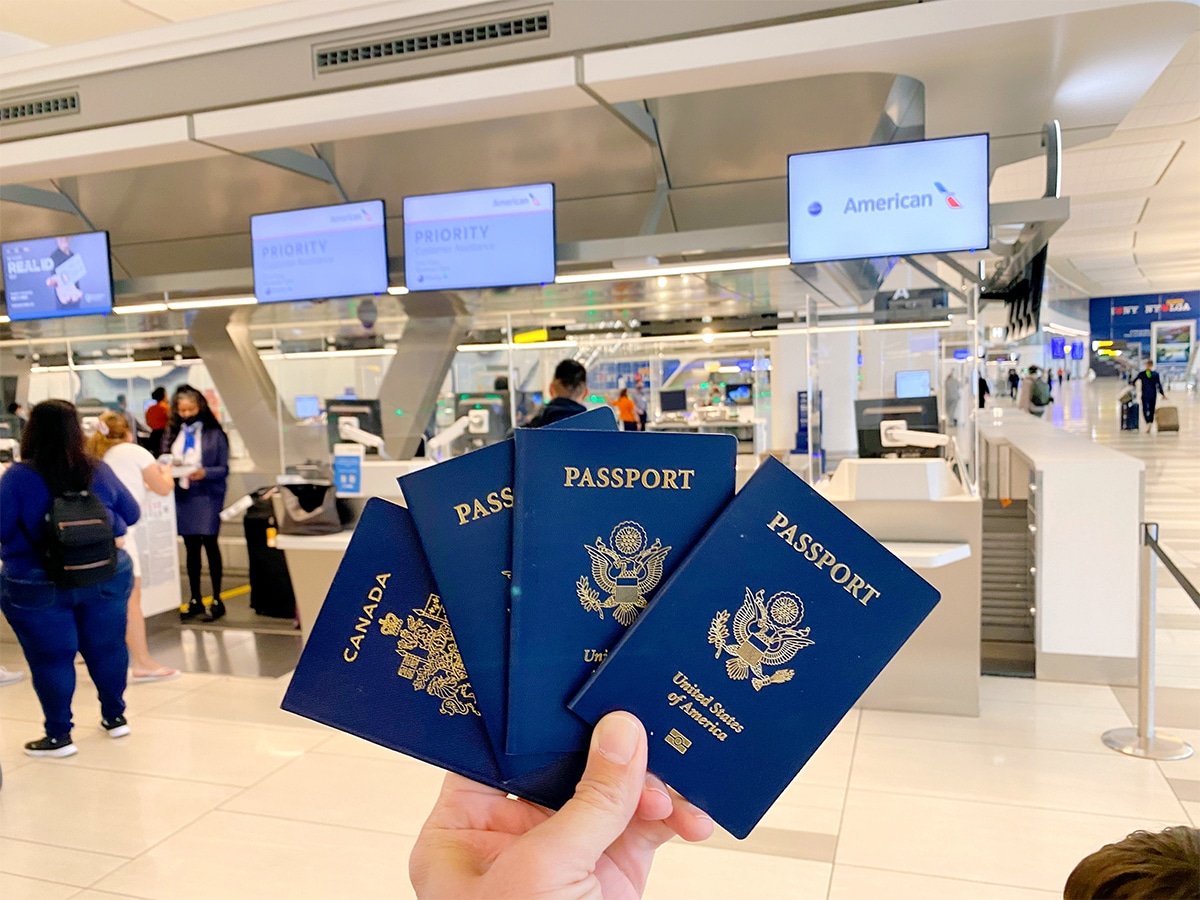
1. Make Sure You Have A Valid Passport
If you’re planning to travel out of the country, make sure your passport is valid. Remember that many countries require that your passport be valid for at least six months (some just three months) after your arrival date before they’ll grant entry to their country. It doesn’t matter if you’re only going for a day; if you don’t have at least six months validity, you could, and probably will be denied entry. Here’s how to renew or apply for a passport. For more, here are 10 passport tips that will save you time, money and headaches.
2. Pack Light + What Not to Pack
One of my top three travel tips is to pack light. Trust me: It will make your travel experience so much easier. When my then-girlfriend, now-wife, Natalie, showed up for our first trip together, which was just a weekend trip, she looked like a 1920s transatlantic passenger with the size of her trunk! I had to put on the brakes and show her the light.
I used to pack the same way but I learned the benefits of traveling light, like not having to pay for checked luggage, not having to show up early to the airport, not having to stand in long lines to check your bag or stand around for what seems like an eternity for your bags to come out at baggage claim (if they ever do). You also don’t have to worry about the airline losing your bag, and you’ll be able to switch to an earlier or non-delayed flight more easily and you can take public transportation to get around, which is usually faster and cheaper – especially in Europe.
Then, Natalie figured out how to pack even lighter than me and when I suggested she check a bag for one of our round-the-world trips, she looked at me like I was crazy. Now that we have kids, our carry-on days are behind us but if you can, don’t check a bag. And if you have to, make sure you pop an Apple AirTag or Samsung SmartTag inside so you can always track your own luggage, since the airlines are currently losing record numbers of bags.
All I take is a Briggs & Riley rolling bag, which has my valuables and work supplies (laptop, tablet, chargers, etc), along with a medium-sized leather duffel bag with clothes for a week. I’ll find a place to wash my clothes when my trips are longer than seven days, which they usually are.
GOOD TO KNOW: 10 Things You Don’t Need to Pack
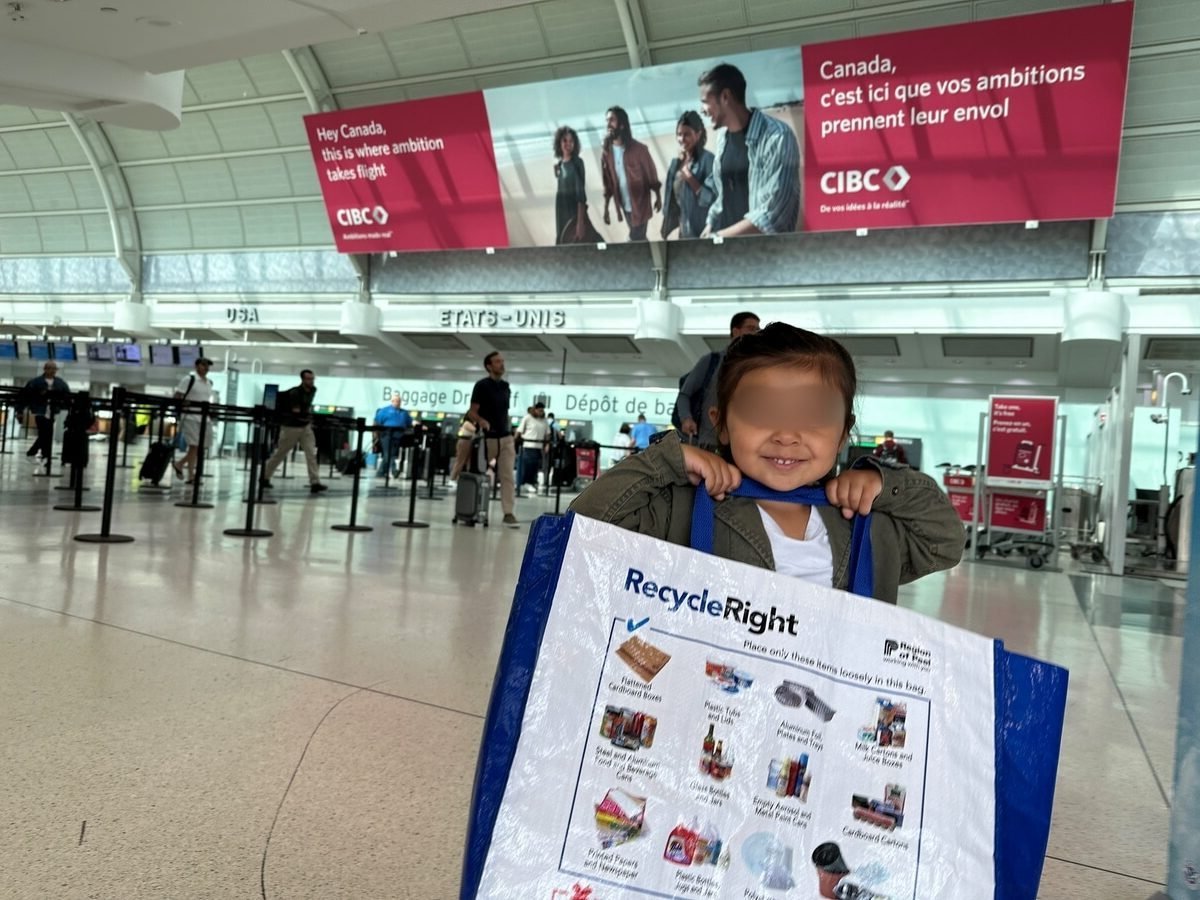
3. Pack an Extra Bag
If you think you might do a fair bit of shopping on your travels, then pack a zippered, lightweight bag that packs flat in your carry-on or checked suitcase. That way, if you have too much stuff, you can check an extra bag on the way back. If you purchase expensive items, then put your dirty clothes in the checked bag and carry the more valuable items on the plane.

4. Combat Jet Lag + How to Sleep on a Plane
The best way to combat jet lag is to get on the local schedule as soon as possible. I usually start doing this the day before I fly by going to bed early, and the moment I get on the plane, I set my watch to local time. I then try to sleep and eat at the times they would be doing so at my destination. If you take an overnight flight and don’t get much rest, don’t go to sleep when you arrive. Instead, fight it. Try and stay awake until at least 10pm so you can get on local time as soon as possible. Here are 10 tips for getting some sleep on a plane.
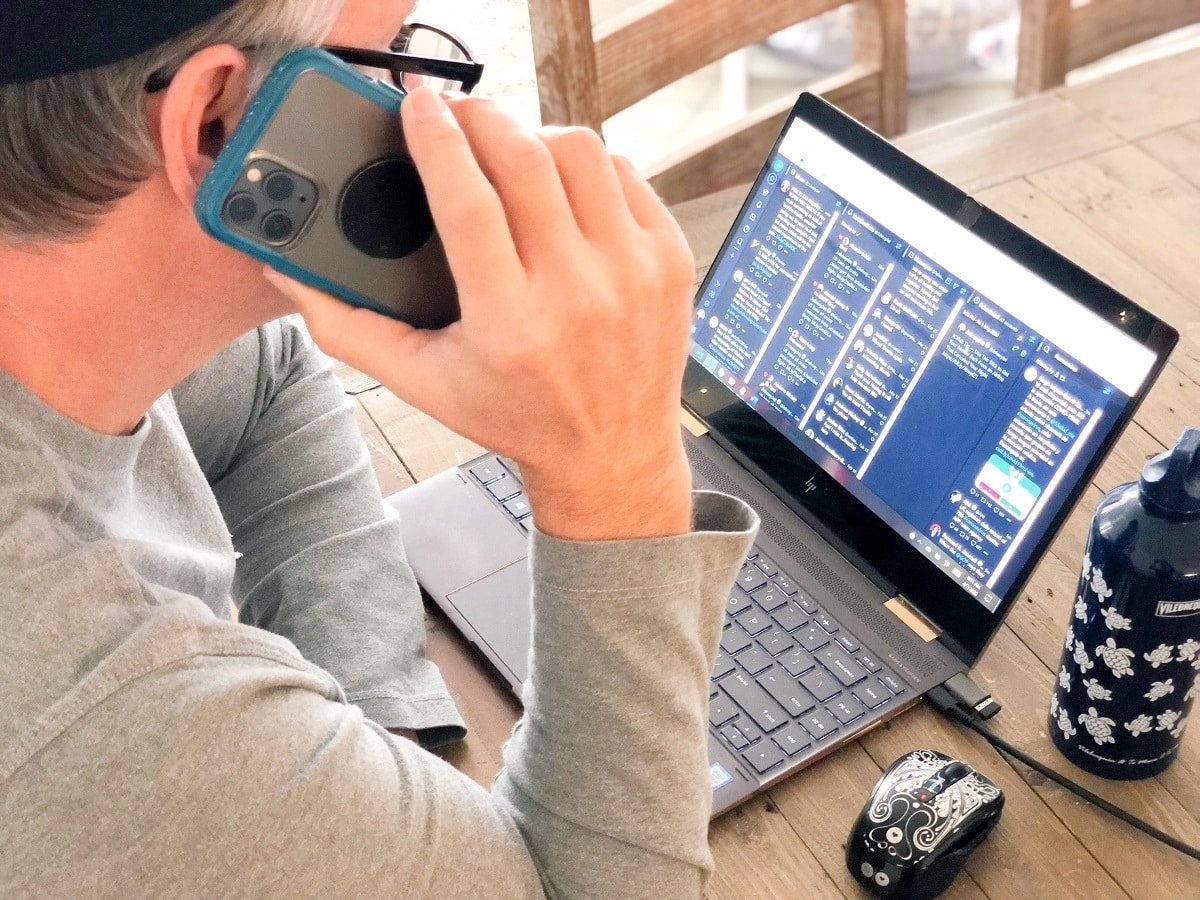
5. Call Your Credit Card Company
Tell your bank and credit card company before you leave on your trip that you are going out of the country. Let them know the places you are going and the dates you’ll be away because after all of the credit card hacking, they will put a block on your card(s) immediately and this can put a real damper on your trip. So make a quick call in advance or get online to avoid this hassle. Here’s our list of credit card partners. Be sure to get a credit card with no foreign transaction fees and a chip and pin. Make sure you know what your four-digit pin is because many automated machines require it.
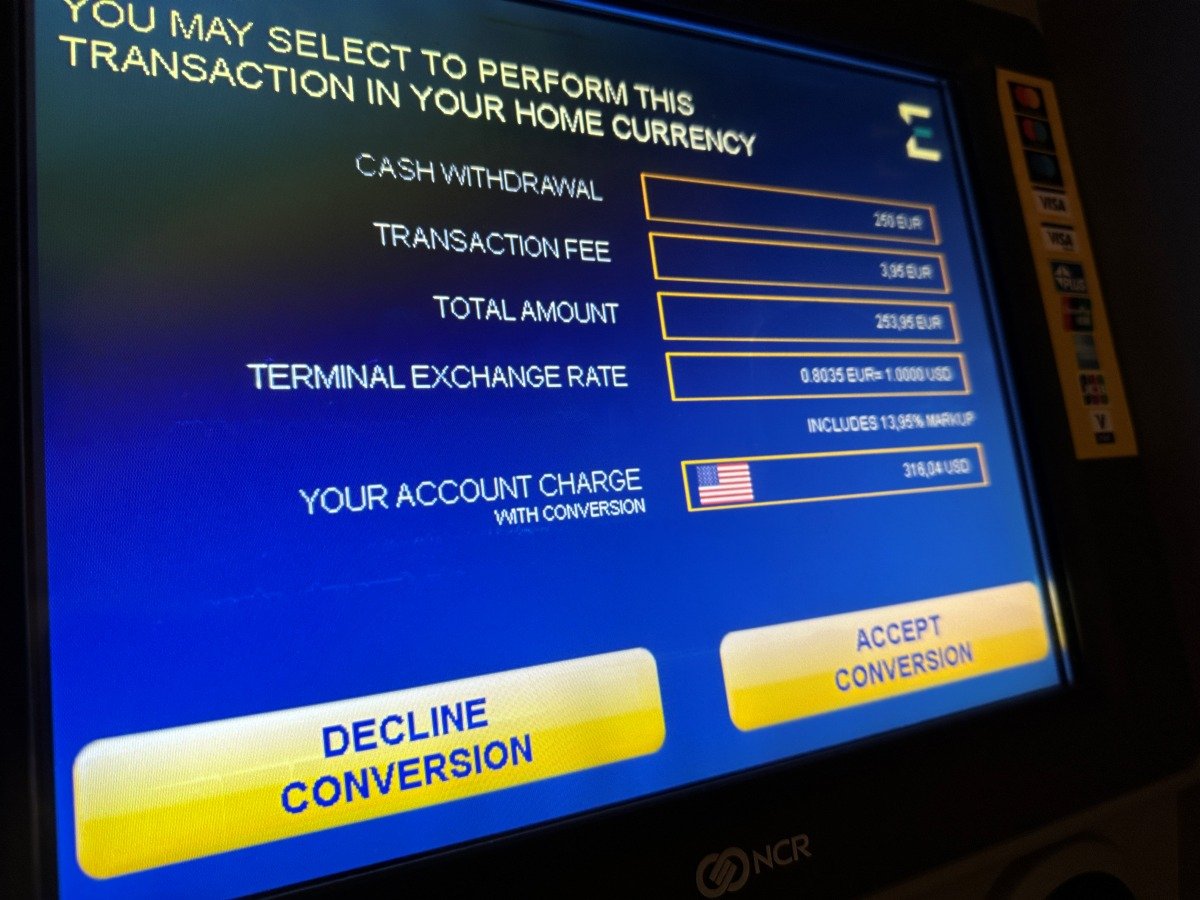
6. Always Pay in Local Currency
One of the biggest scams I find major stores committing overseas is after they swipe your credit card and it registers as U.S., they try and make it sound like they are helping you save money by asking if you would like to pay in U.S. dollars or in the local currency. Paying in U.S. dollars would seem to be the more convenient option, but in reality, it’s not. In fact, it’s a total rip-off, since the stores and ATM machines that do this charge a higher exchange fee than your bank back home does. So, remember to always pay in the local currency of the country you’re in.
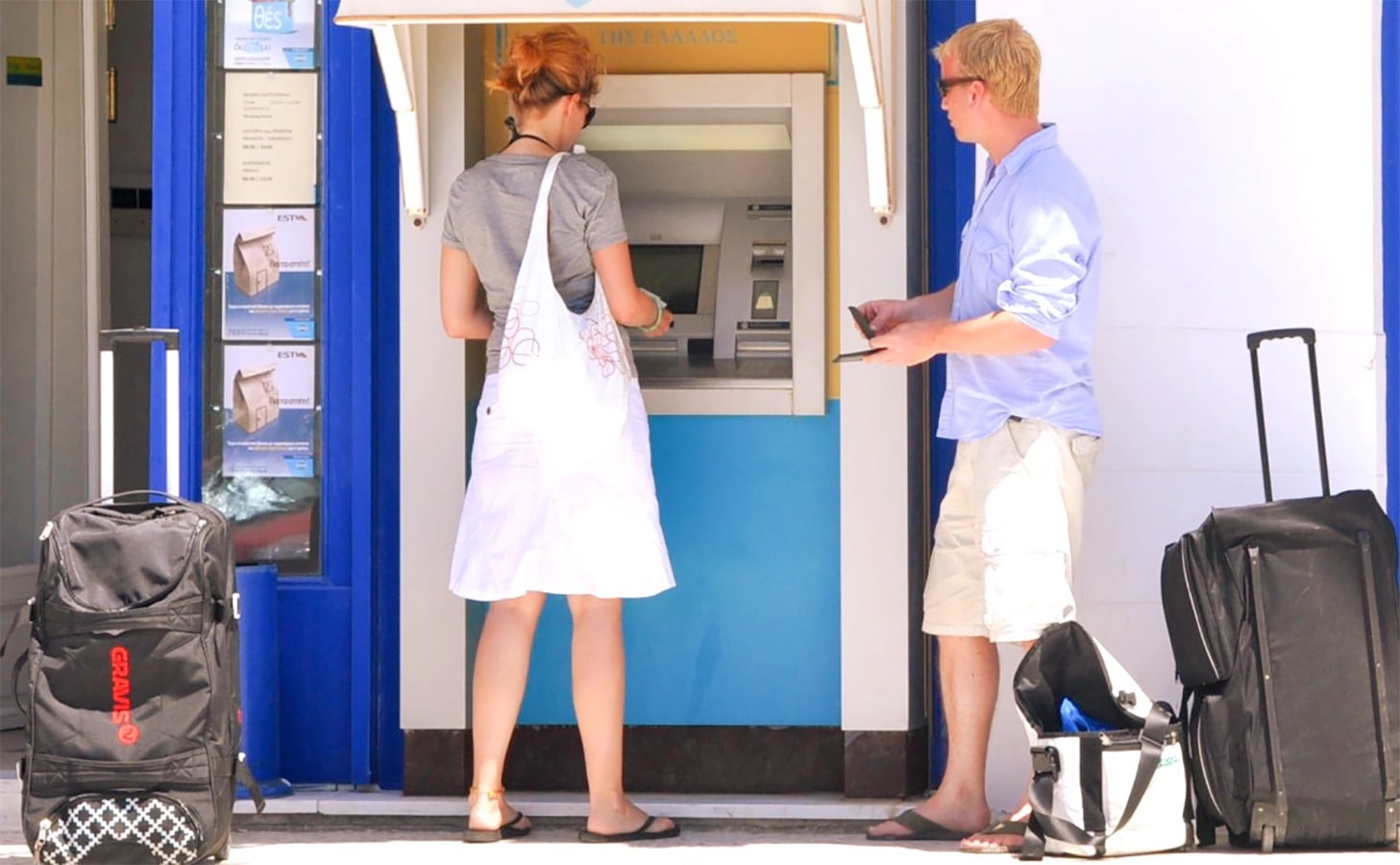
7. Avoid ATM Fees
Before leaving the country, it’s always smart to check with your bank to see what ATM fees to expect. “When you use a foreign ATM, you could be charged a variety of fees, including non-bank ATM usage fees, ATM operator access fees, and international transaction fees for conversion to U.S. dollars.” That quote is directly from Bank of America, which goes on to tell its customers, “One way to limit such fees is to use your Bank of America ATM or debit card at one of our international partner ATMs. This enables you to avoid the Non-Bank of America ATM $5 usage fee for each withdrawal, transfer or balance, as well as the ATM operator access fee.” Here’s a list of Bank of America’s partners.
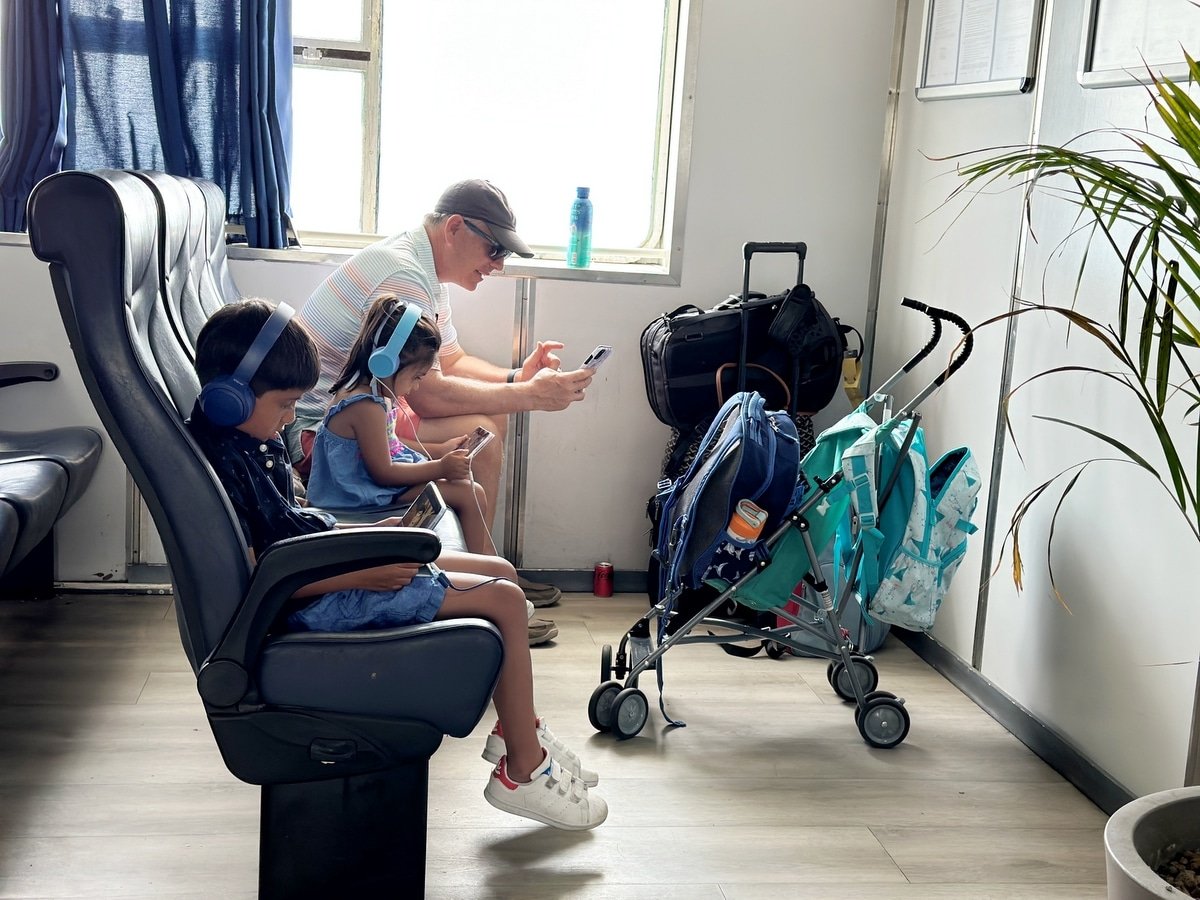
8. Check Your Phone Plan
Before you start using all of your apps, make sure your cell provider won’t bankrupt you. Before leaving on your trip, call your provider and ask them if you are covered for the countries you are traveling to. If not, either turn your phone off or put it in airplane mode and just use WiFi. If you have T-Mobile, chances are you will be able to get free data and inexpensive phone calls ($0.20 a minute). If you are cruising, follow this advice. If you have a new phone with an eSIM, use a company called Ubigi to get inexpensive data.
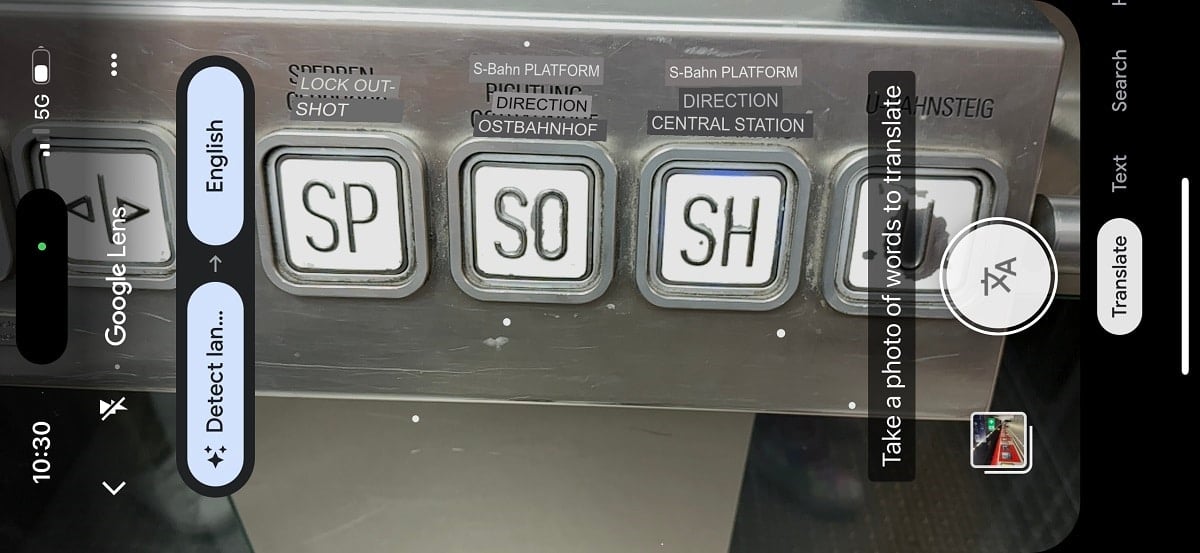
9. Download Apps like Google Maps & Google Translate
These days, you rarely have to worry about not being able to communicate overseas. People always think I speak multiple languages because I travel so often and don’t have a difficult time doing it. Sadly, I only speak English and I’m not even very good at that. However, more and more people are speaking English in the past 15 years, especially the younger generation.
During all my travels, I only once ran into a problem not speaking the local language and that was in China. But since then, there’s been so much technological innovation, including the Google Translate app (Android and iOS). It’s free to download and can translate over 133 languages (you can even translate dozens of languages when there’s no Internet). The app also has instant camera translation whereby you can translate text in images instantly by just pointing your camera (see screenshot above of the elevator buttons in the Hilton MUC Airport Hotel). Travelers can translate any text including street signs and menus just by holding up their camera. The translation appears as an overlay on the phone screen, just like that.
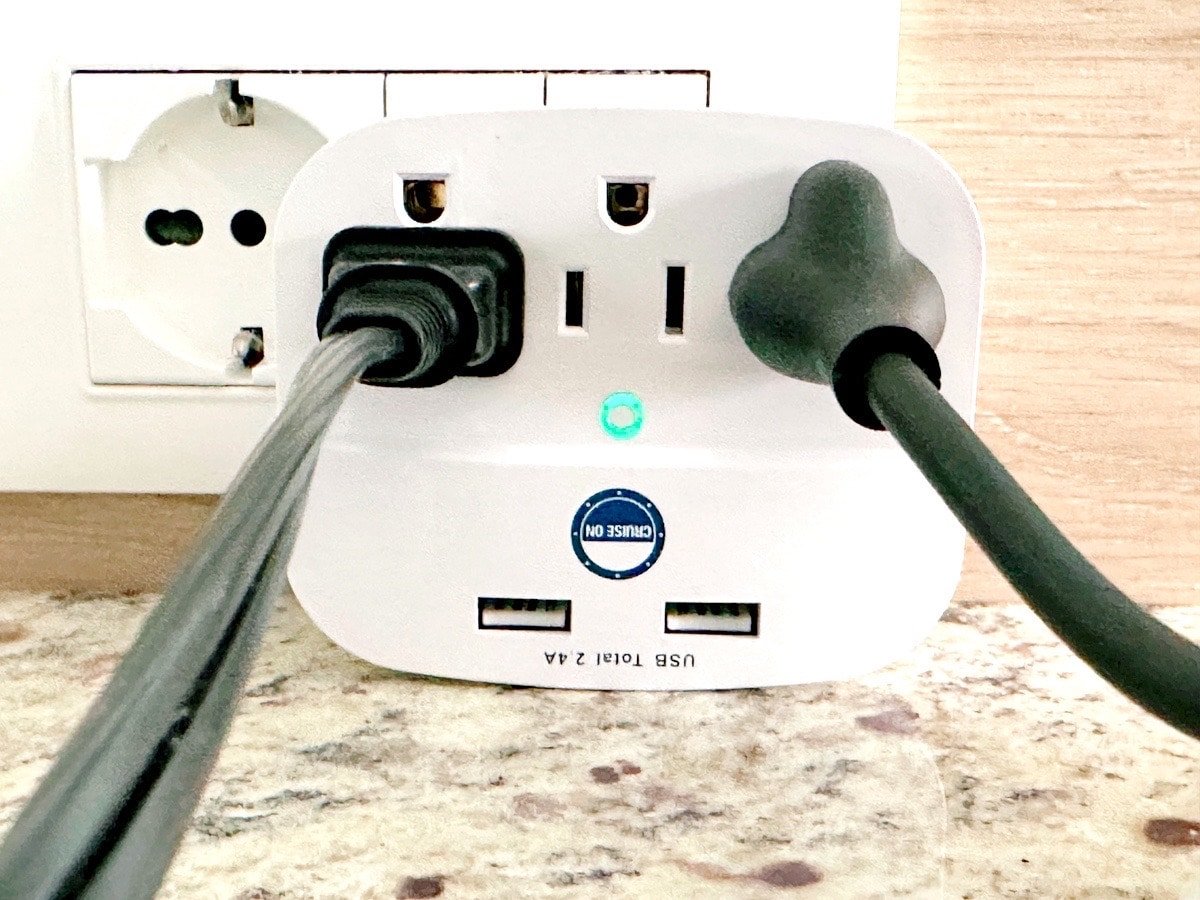
10. Get an Adapter + Power Strip
Instead of buying multiple individual plug adapters, with a power strip, you can just buy one (or if you travel a lot, then buy one multi-country adapter like this one). That way, you can plug multiple cords in and just use one outlet. And that’s key, since a lot of hotel rooms and cabins on cruises only have one or two outlets.
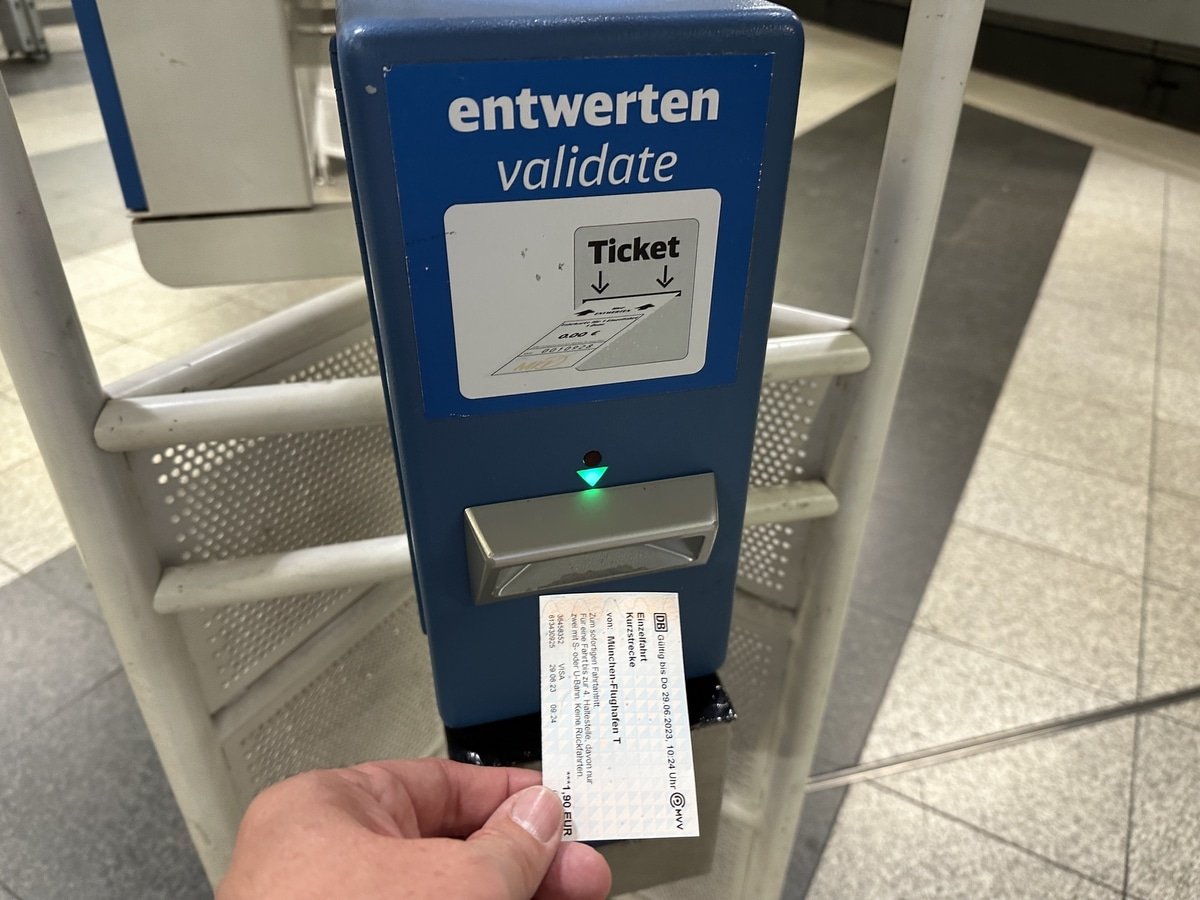
11. Validate Your Bus and Train Tickets in Europe
This tip was left by reader Orit R. from Israel, who says: “I just had friends come back from the Czech Republic where they had bought bus/tram tickets. As in most European countries, this kind of transport works on the honor system, in which you must endorse [validate] your ticket when getting on the transportation. My friends thought that since they’d bought the tickets, they were okay to go. Well, the transport ticket police got on their bus and were checking all the tickets and when one of them got to my friends, he saw the tickets were not endorsed. My friends tried explaining that they were tourists and didn’t understand the language, but that didn’t help. They were ‘off-loaded’ at the next station and taken to the police station, where they received a hefty fine. They were on their way to a prepaid tour, and of course, due to time they missed their tour.” Many European countries have this system so don’t forget to validate your bus, train or boat ticket if it’s required.
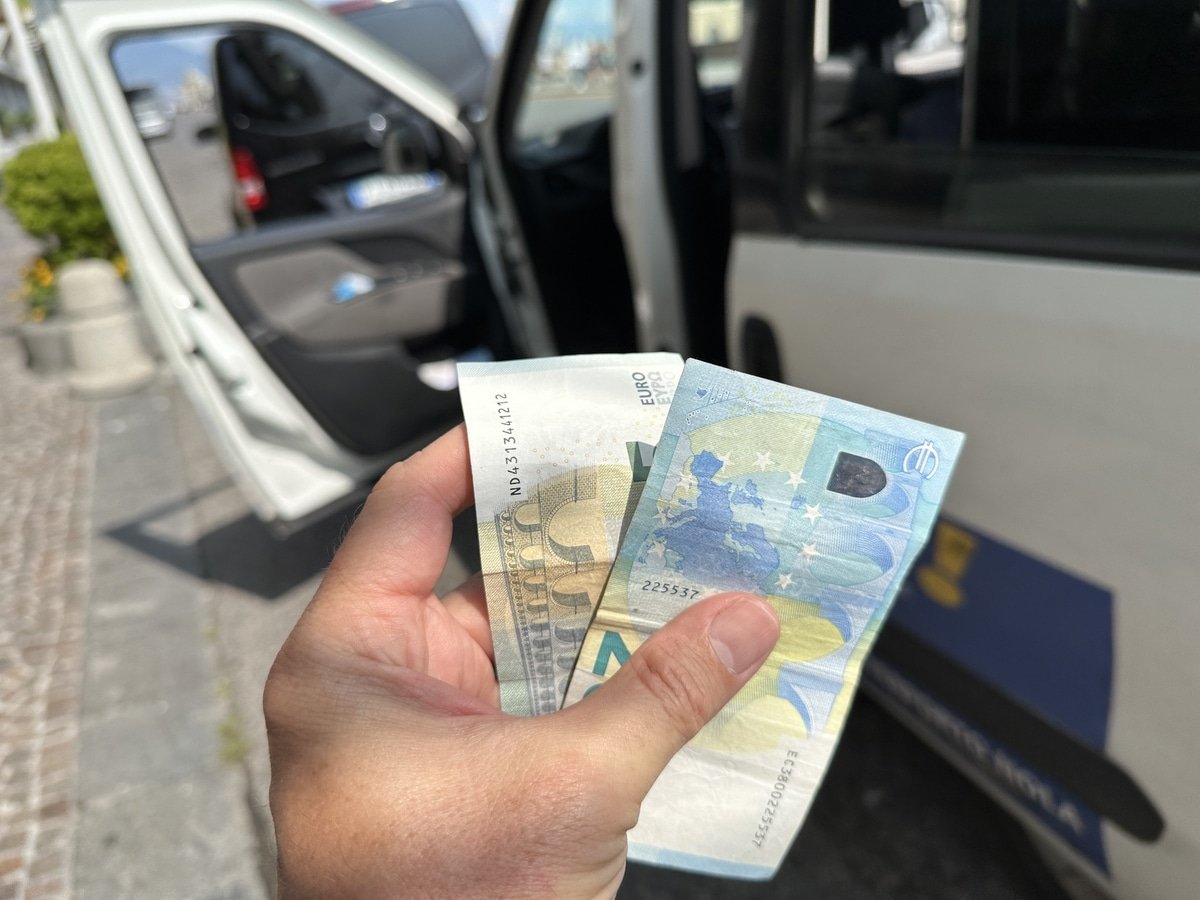
12. Tipping
Tipping has gotten out of control in the U.S. I’m now being asked to tip on takeout and using automated machines. Fortunately, it’s not like that in Europe as employees are paid a living wage. Of course, tips are appreciated but they aren’t always expected. The amount really depends not only on the country you’re in. Rick Steves has a good post on it.
This post was originally published in 2015 but has since been updated with current information.
KEEP READING:
–12 Things You Never Knew About Italy
–7 Things to Do in Naples, Italy
–12 Things to Know Before Going to Paris
–19 of the Best Off-the-Beaten Path Things to See and Do in Paris

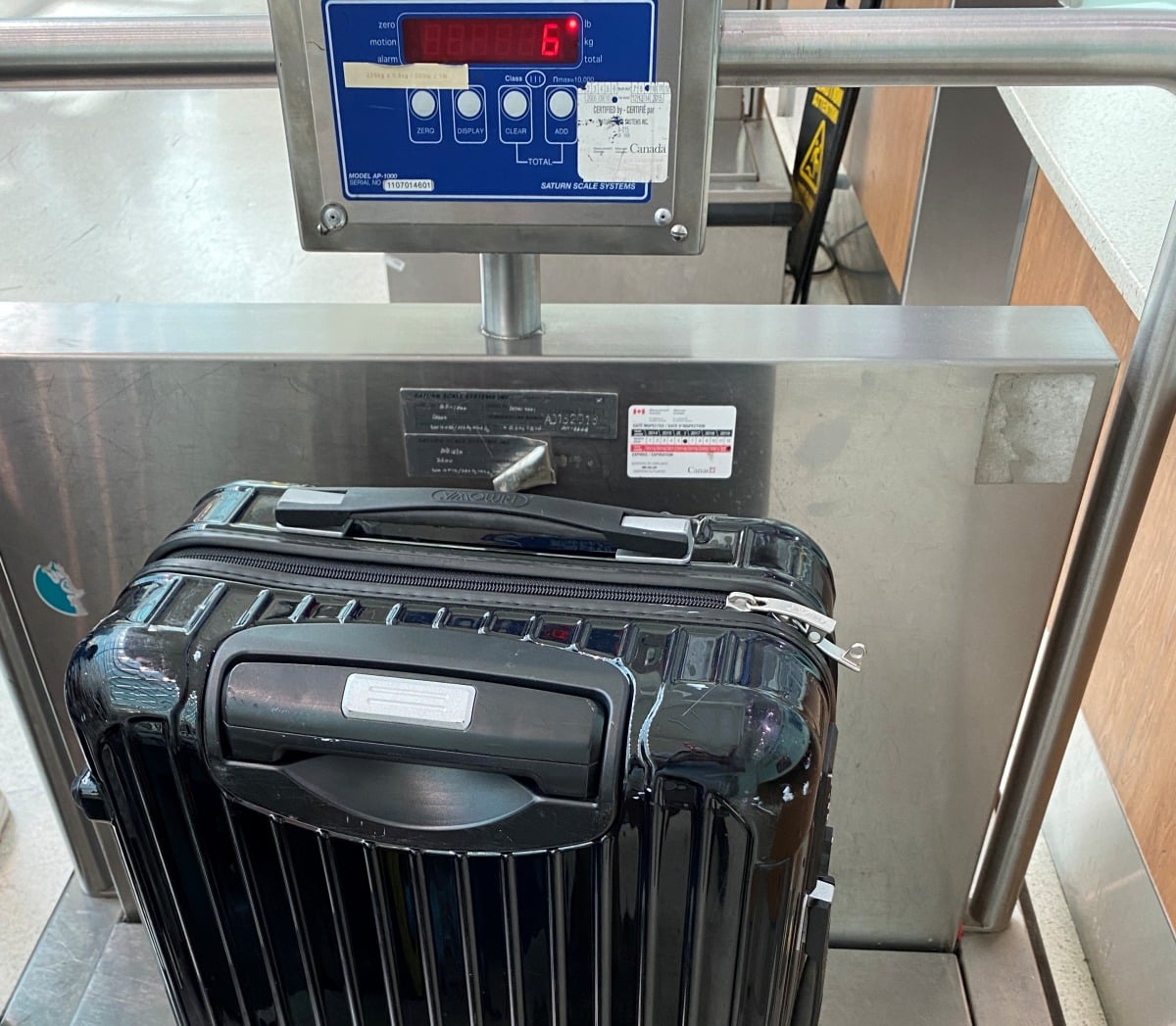




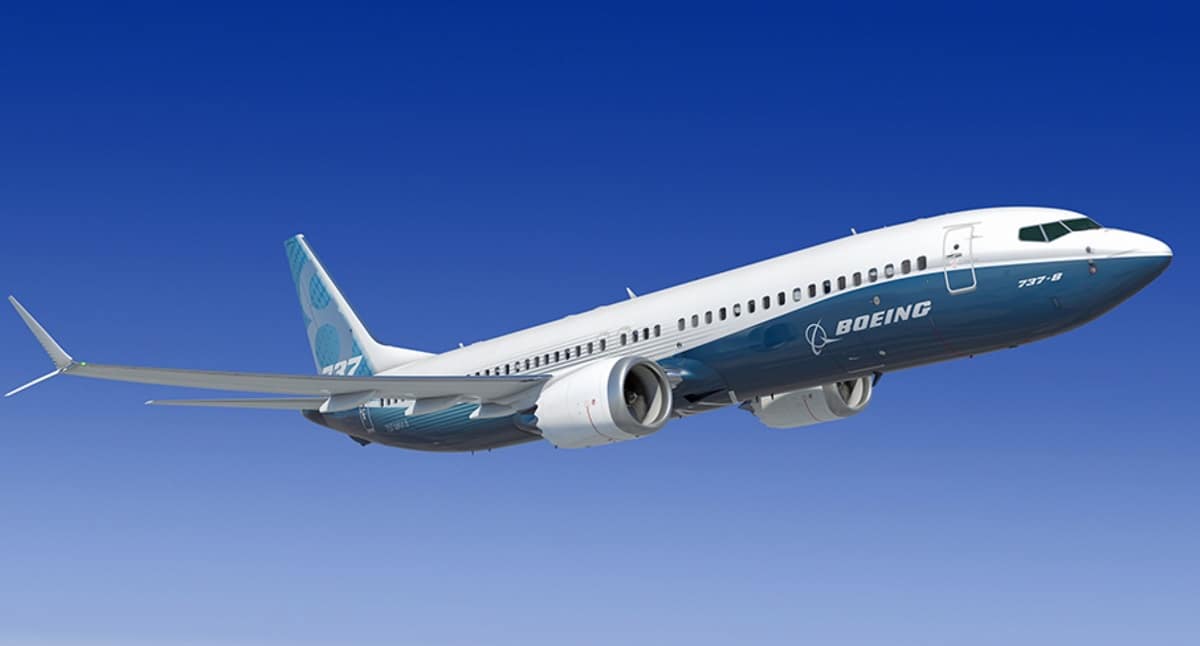


Another tip when it comes to hand luggage, make sure you don’t have too much. Airlines in America have more hand luggages allowens than the European airlines. The “trolly” suitcase have to fit in under the seat in front of you and on most airlines you are only allowed to bring one carry one. Not one trolly bag and one back pack, but only one carry on in total. If you travel on low cost airlines, like Ryan Air, read all the information in advance, too much luggage will cost you tons of money (just one of the 100 reasons why I don’t fly Ryan Air or many other low cost airlines).
That move by the police in the Czech Republic reminds me of some police departments in rural areas of Pennsylvania who target drivers from out of the area with speed traps, knowing that they will usually pay fines without making a fuss. This is a major source of revenue for some of the police departments. Your tip about making sure your passport is still valid for 6 months after you plan to travel is a very important one because airlines do not consider it their responsibility to tell you this. I had a friend who was denied boarding for a trip to Europe because she did not know this. Also, it is important for travellers to take responsibility for knowing the visa requirements for anywhere to which they are traveling. Again, it is important to do your own research. When booking a cruise for Southeast Asia, I was once given incorrect visa information by the cruise line. Fortunately, I had done my own research and found the mistake before it was too late.
I’m a Canadian, and I’ve only been pulled over for speeding once. I was going 57 in a 55 in Beaver Springs, Pennsylvania. Those PA cops are dicks when it comes to out-of-towners. Some reputation they’re building for that state, lol.
European airlines have different carryon bag rules so be prepared.
We just got back from Europe. We we’re shown compassion by the conductor for un-validated train tickets. We also saw the “pay with Canadian Dollar” on our credit cards in Switzerland. Finally for any Canadian travellers – consider dealing with “Tangerine” online bank. They have no service charges on withdrawals from several European bank ATMs belonging to Scotiabank Global Alliance.
We travelled with first class rail tickets and just loved the speed and comfort. First class was not much more but well worth it! It was a real step down getting back on a transatlantic flight home back in economy class.
Good tips but the article isn’t really related to Europe. The tips are very general.
My main tip for travelling to Europe is to learn some basic of the language you’re travelling in. You’ll be greeted with smiles in stores etc and you won’t feel like a tourist.
Very true! When we went to Mexico I used as much Spanish (poorly) as possible and the locals really appreciated it. Remember you are visiting their country.
You asked for comments and without wanting to be negative I have to ask: What does this common sense travel advice that any traveler reading your blog would know, help them while in Europe except maybe #12. Surely these simple items would benefit anyone travelling most places beyond North America .anywhere in the
Nowadays many European cities use smart cards for public transport. It’s a good idea to google in advance what kind of cards are available and what’s the best option for your visit — and most importantly, how to load money on them. Buying single, old fashioned tickets is usually the most expensive way to travel and they may no longer be available at all.
It’s also worth checking if the country has easily obtainable prepaid SIM cards. In some countries you’ll get an unlimited data SIM card for something like 20€ for a month that makes using Google Maps and other apps a lot easier.
Next should be the 12 things to know after you arrive in Europe.
Better option on foreign ATMs that trying to avoid the typical big bank charge (aka the $5 non Bank of America ATM charge) is use a smaller bank or credit union for your banking. My credit union rebates up to $10 per month that a foriegn bank may charge and doesn’t add a fee of its own!
I would also add a “heads-up” about low cost carriers and different countries. I travelled all over SEAsia on Air Asia with a single day style backpack/laptop bag (easily fits in overhead compartment) and a shoulder bag. They were pretty heavy, but no worries, no measurements. They seemed pleased I had so little. Now I live in Australia. I recently took a Jetstar flight w/my business wheelie bag and a small laptop backpack. During boarding, they brought out a scale and weighed everyone’s carry-on. I was going away for 6 days. I had 4 shirts (it’s winter here!), 2 pants, workout shorts & shirt, 3 changes of underclothes (bras, undies, sox), bikini, flip flops (for the pool/spa) and running shoes. The limit is 7 kg. I was at 9 kg including my laptop bag. I was charged $50 at the gate, and $23 by booking my bag on line for my return trip – for a regulation wheelie bag! It may have seemed like a cheap fare at the time, but BUYER BEWARE. Know your limits and how stringently they’ll enforce them!
Great tips on traveling to Europe, but I had a couple questions about your travel bags. In particular, which model of the Briggs & Riley rolling bag do you use and have you had any problems stowing it under the seat, especially on smaller commuter planes? I am in the market for such a bag, but am concerned about getting a bag that will fit on those smaller planes. I live in Montana and many of our flights have migrated to the smaller commuter planes. Thanks!
Hi Erik,
I’m not even sure what mine is but it doesn’t always fit under every regional jets seat – that’s why i try and avoid tem
Without checked luggage how can I take manicure scissors, toothpaste, hair goop, lipstick, liquid makeup, suntan lotion, etc. i know you can buy things in other countries, but it is not the first thing I want to do.
Try these https://johnnyjet.com/2014/06/travel-product-of-the-week-squeeze-pod/
Thank for d wonderful tip…i will surely follow ur advice.
I plan to visit france this yr..n will start my planing
Have a great day
Jade
I don’t even know the way I ended up here, however I thought this put up used to be
good. I do not realize who you’re but certainly you’re
going to a famous blogger if you happen to aren’t already.
Cheers!
Thanks for the tips before traveling to Europe! I will be going to Europe again soon, and I will have to make sure to use all these tips when planning my trip and while I am there. Also, for other travelers, checkout my 12 Tips for Cheaper Travel at my travel blog! — Cheers!
Some good tips. Travelling to Europe is much simplier after introduction of Euro as single currency. If I could rank my things to watch out it would be:
Avoid currency excange offices in tourist traps ( Venice, Florence, paris etc.)
Research your credit card policy on fees
Check different ATM fees ( depending how much you whitdraw )
If you follow only these 3 tips you could save a lot of money.
Neno
All great tips – thanks Johnny! For no ATM or bank fees, I love having a Charles Schwab account. Amazing!
Thanks for sharing this useful article, it’s very important to know the most things can help us to visiting Europe.
In relation to Number 6., It is NOT a “scam” where you are asked which currency you wish to pay in. When your card is entered in the machine, it knows you are from the United States ( Or Australia or China etc etc), the option to pay in local currency or US dollars is offered by the credit company and not the vendor
Before leaving the US, try to get a “Chip and Pin” credit card rather than the “Chip and Sign” variety that US banks are still using. There were multiple ticket vending machines in European countries that only work with “Chip and Pin” for selling transport tickets. For my latest trip (June 2016) I had gotten a BarclaysCardUS from Johnny’s recommendation which was a “Chip and Pin” and it really worked!
Be sure to scan your passport and email the scanned image of the passport (and visas) to yourself and partner(s). In case of loss, you have proof on your smartphone of your passport.
Buy bright colored luggage. Due to liquids, I had to check through a bag to Prague. When it didn’t arrive, it helped that it was a bright yellow Hilfiger luggage that stood out for the airport personnel to find in a room full of black luggage. Once arriving in Moscow, the lights went out and it was much easier finding that bag on the conveyor belt due to its bright color. For that matter, bright colored smartphone covers, backpacks, etc., stand out and are less likely to be forgotten in a dark restaurant or hotel room.
Bring a small tube of detergent with which to wash your clothes in the hotel sink. In Europe, the wash machines take forever for one load, but the dryers can be fast. If you wash your clothes in the sink with detergent, you can save a lot of time by drying them in a “Wasch Salon” – usually less than 30 minutes. A wash cycle in a European machine is sometimes longer than 90 minutes!
When renting a car in Europe, be sure to photograph the car from all angles as proof of its condition at the time of pick-up. Most European car rental companies thoroughly inspect the car upon return and your pictures can document any discrepancies. If you are not adept with a standard transmission car, practice with one in the states before you go to Europe as many rentals there are standard transmission. As a safety matter, learn how to shift a standard transmission car in case you are stranded somewhere (perhaps with a drunken driver) and a standard transmission car.
In Europe, many cities have excellent public transportation systems that offer touristic routes without the cost of a touristic “hop on-off” bus, for example. In London, you can see everything on the Bus #23 which runs from Westbourne Grove to Liverpool Street – past all the big sights – for the cost of a regular Tube fare! In Paris, take the “Bateau Bus” on the Seine, or in Hamburg, the Finkenwerder Ferry Line #62, which is actually a harbor tour.
Great tips! Thank you
Yes! Rental Car company’s, not just the brands unfamiliar to Americans, but Hertz, Avis, etc. are really really picky about damage to their cars. absolutely photograph everything before departing! On returning the car, they will do a very thorough inspection (unlike anything I ever experienced at USA airports).
Good information, I found out about the self validate train tickets in Norway, almost got on the train but saw some people putting their tickets in a machine so I checked and that is what it was. Good to know in advance. Plus in most places in Europe now you’ll need a chip enabled credit card to use it. Most U.S. banks are switching to this now though.
Also in Austria our bus driver got a speeding ticket for being 2 KM over the limit, came around a corner into a town off the highway and speed limit changed suddenly but he couldn’t slow down fast enough. Police made him pay on the spot. Said the new system is an online camera and once it registers a violation, no matter how small, you MUST pay the fine.
Also, saw this tip yesterday for international travel and using your phone and data overseas. I’ve spent a fortune on roaming packages. This sure sounds like the way to go.
https://www.thurrott.com/cloud/73707/project-fi-paris-international-connectivity-dreams-come-true
Of course, get travel insurance…. Also get on a government travel list to always know where you are going doesn’t have ban on travel that may affect your travel plans (for me this was areas in Kashmir recently). London buses take contactless credit cards now, they DO NOT take money.
Before taking photos of people, ask if you can take their photos. Then show them
the photos you took.
Don’t constantly compare your country to the country you are visiting (out loud at least) it gets old. When you go in a small shop in rural France say bonjour as you enter, it’s a tradition.
Enjoy the differences! (I’m American, living in England for the last 16 years). Try to stay in UK university rooms when students are gone, good deals….
I’m a little bit confused about the tip regarding paying with local currency. I have never traveled internationally, so please excuse my ignorance, but I figured I might as well get clarification ahead of time. You said that once your card is swiped, you are then asked if you’d like to use local or U.S. currency. But if the American card is already swiped, wouldn’t it automatically use U.S. dollars? How does one elect to use Euro or whatever the currency is?
A screen comes up after you swipe asking if you want your own or the country you are in currency.
It is also to do with the exchange rates as well as fees. If you choose pay in local currency then you will pay the exchange rate on your card when it is processed to your statement which could vary day to day. In turn this can increase any transaction fees charges by the bank. It is usually not a great deal of difference but it all adds up if the exchange rate is not in your favour.
Just back from three weeks in Europe and still have no clue how I could have done it without a check bag. Are you only taking the shoes you are wearing? I need at least two pairs. One for business/evening and one for working out/walking. With size 13 shoes, the pair I am not wearing takes up most of a carry on. Then when I have to have a suit with me as well as daytime wear and workout gear…how do you fit that all in. I also have to have my electronics bag as you do. I love my Lowepro bag that fits my Nikon D810, two additional lenses, my iPod Pro, my 15″ MacBook Pro and all the cords for all of those. Light as a feather (unlike my old Briggs and Riley) when empty and still manageable when full.
I wear a comfortable pair and bring a dress pair
I was not able to purchase Islandic Kroner before a trip to Iceland and was advised could only purchase in Iceland. In addition I was unsure how much cash I would need for daily costs
I was there for four or five days and found I did not need any local currency. I used credit card everywhere for everything including a single coffee on one occasion
The upside being I did not pay to purchase currency,or get left with any useless currency or lose on exchanging back. The credit card international transaction fees were a few cents.
I also tend to check if you can drink the water. In many countries the water is drinkable, but only to locals. And the quality varies per region. So if they put some icecubes in your glass and you aren’t used to the water then you could end up with diarrhea. A bit of research saves having to pack some extra underwear.
This is great! This has been my dream but my problem is I don’t have any relative over their is it possible to come any house for visitors
Thanks for your website, it is really great :)
I really love to travel too because it an amazing experience! I also did a website than you can visit and share if you like it !
The ATM fee recommendations are a little outdated. Look into online banks with no atm fees. It would be interesting to hear your views on how much cash to bring as well as how to use wifi safely when abroad.
Excellent advice. Here’s another piece of advice for Americans traveling to Europe – especially with a lot of political unrest and terrorists threats and activity: Register your foreign travel with the U.S. Department Of State to receive ‘travel warnings and alerts’ – as follows:
The U.S. Embassy and/or Consulate in the European nation (s) you are traveling in will issue a Travel Warning when they want you to consider very carefully whether you should go to a country at all. Examples of reasons for issuing a Travel Warning might include unstable government, civil war, ongoing intense crime or violence, or frequent terrorist attacks. We want you to know the risks of traveling to these places and to strongly consider not going to them at all. Travel Warnings remain in place until the situation changes; some have been in effect for years.
Also, the U.S. Embassy and/or Consulate will issue a Travel Alert for short-term events they think you should know about when planning travel to a country. Examples of reasons for issuing a Travel Alert might include an election season that is bound to have many strikes, demonstrations, or disturbances; a health alert like an outbreak of H1N1; or evidence of an elevated risk of terrorist attacks. When these short-term events are over, we cancel the Travel Alert.
web site to register: https://travel.state.gov/content/passports/en/alertswarnings.html
Some of this is very helpful but dont know how true this is about your friend as i am from Europe and can confirm that there is no way your friend got arrested for not validating there ticket…. they may have been asked to pay for another ticket and then became abusive and got finedfor that as the police take no part in checking tickets on buses this is the job of a ticket inspector. Transport police are used for abusive or drunk people that may cause trouble.
Yes validate your ticket by all means as you may have to pay an extra fare but please dont go there with your back up because someont told you online you would be arrested for this. This is europe we are talking about not the middle east.
Regarding credit card exchange fees, we upgraded to the UBS Infinite credit card that has higher yearly fees but you make it back with all the benefits, one of them being no foreign exchange fees when you use the card in Europe. I think we can also use this card in ATMs without fees but need to check. You may want to consider trading up to the higher level credit card when traveling abroad.
Thank you for your travel tips. I like how you said to always use local currency. My husband and I are thinking of going to Europe soon.
https://nomads4life.com/category/httpnomads4life-comadvice-from-featured-nomads
Several countries in Europe have a bottle recycling system. For example, Germany has a Pfand system that has brought about a wonderful change for the better. In this system, eight to twenty-five cents are added to your receipt when you buy plastic bottles, cans of soda or glass bottles of alcoholic or non-alcoholic beverages which are then returned to another shop. The shop has to accept the bottle even if they weren’t the shop that sold those bottles to you in the first place. The Pfand system is a wonderful idea implemented to bring about environmental change for the better.
Do you know what brand your power strip plug converter is? I only have plug converters and there never seem to be enough outlets.
I have a wonderful travel agent. I am a detailed traveler and he is capable of doing things that I cannot do. You are a great advisor. Thanks for advising these simple for you-travel-to-europe.
Thanks for sharing these tips, It will be kept in my mind on my next travel in Europe. I will use local currency always while traveling
I agree with you
Very in depth tips! Thanks for sharing
Living in Germany, what I’ve seen American tourists struggle most with is the metric system. It’s everywhere and shows up in unexpected ways – for example, in many European countries, you’ll have a hard time finding a quarter pounder. (113.4 gram burger sounds kinda stupid – if you’re at McDonald’s, the equivalent probably has “Royal” somewhere in the name.) Servers might not know what a pint is. The weather forecast is in degree Celsius. Luckily, you can Google most of this nowadays but it’s such a common source of confusion that I’m surprised it didn’t make it on the list.
Do you have any suggestions regarding pre-paid VISA/Master Cards for use in Austria? I will be traveling there in the Spring and have never traveled overseas. Any tips would be great.
Your article is very helpful, especially for the beginner. I love traveling, you may also visit my tips here: https://www.wkadventures.com/outdoor/outdoor-adventures-five-reasons-to-try-overlanding-on-your-next-trip/
We’ve never been to Europe and are talking about planing a trip. It will most likely be a one and done for us do to our age. Hubby wants to see Ireland, Scotland and Wales. I’d like to see France, Germany and England. What would be a good plan if time wasn’t a restriction? I’m thinking a river cruise plus some tours and hotel stays. We do have a time share that could be used for 1 week in a more central location.
Any thoughts?
Um, haven’t you been reading the news? 🔥
Good list that we already adhere to.
We (family of 4) just got back from our 6-weeks Turkey & Italy trip. Going SNA-SFO-AMS-IST, on a United.com purchased tickets. TK or the airport lost ALL our 4 bags at AMS. We got them back 5 days later delivered to us at our apartment in Galata, Istanbul – 2 bags were damaged beyond repair, but all the content was fine. Imagine 5 days without your stuff!!! Then on to Florence flying IST-FRA on LH and FRA-FLR on Air Dolomiti. Arrived late around midnight at FLR with only 3 bags! Again, a bag is missing and the luggage office was closed! Schlepped the next day back to the airport to file a report, and the bag was delivered finally after 5 days. So, on to Rome by train which was fast and comfortable. Staff at all airlines (TK, Dolomiti, LH) could care less, and it seems that their baggage handlers are even worse.
The hot temperatures in Florence and Rome were unbearably oppressive. I understand that it is the summer season, but this was ridiculous with over 100F for 10+ days in a row, with no let up! Also, prices at restaurants, grocery stores, accommodations have doubled since our last visit to Italy 2 years ago (summer 2011), not to mention hoards of never-ending tourists everywhere. Some attributed to “revenge travel” due to the lockdowns!
Perhaps we had a bad luck but we did our best to enjoy our trip. Moral of the story: if you have to go, do it in the off season (less crowds, better weather, cheaper, etc.) and expect the worst to happen to your luggage (i.e. pack essentials in your carry on).